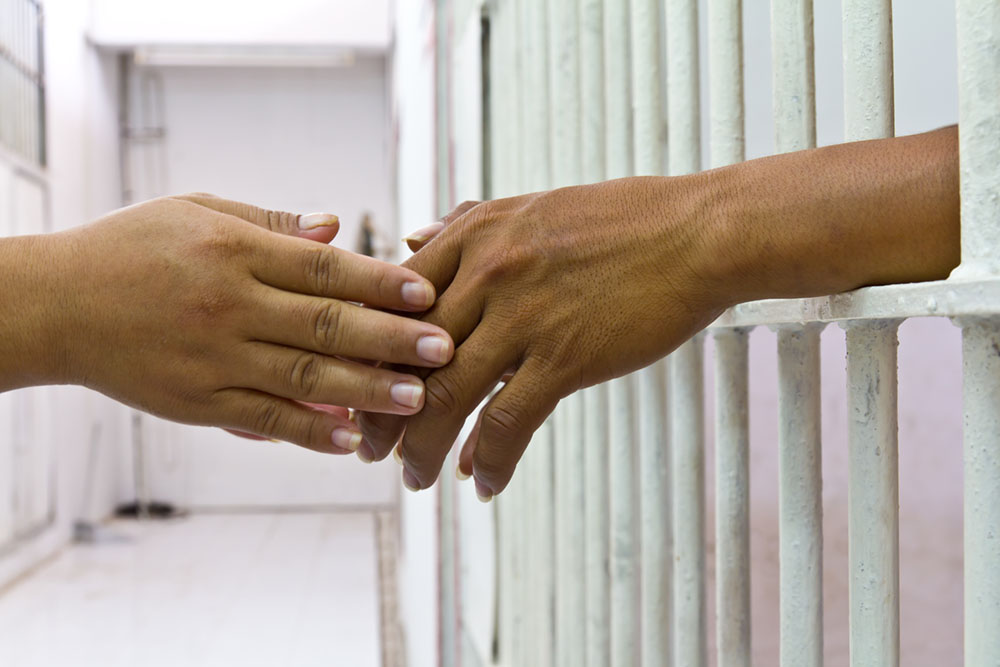Study Explores How Women Handle Stigma of Staying with Imprisoned Men
By: Brittany Magelssen | Sept. 29, 2021

The way incarcerated people serve their time and the struggles they face when they are released, including the stigma associated with the criminal label, are well-studied topics. Less is known, however, about the extension of that stigma to their romantic partners.
In a study published online Aug. 17 in the journal Criminal Justice Studies, a researcher from The University of Texas at Dallas explored the courtesy stigma, also known as “stigma by association,” faced by those in romantic relationships with incarcerated partners.
“Much of the prior literature has focused on the impact of stigma from the perspective of the person who is incarcerated, or on children and how they manage the courtesy stigma associated with parents who are incarcerated,” said Dr. Lynne Vieraitis, professor of criminology and criminal justice in the School of Economic, Political and Policy Sciences and one of the study’s authors. “Our study examines the impact of courtesy stigma from the nonincarcerated partner’s perspective, and in this case, the woman’s perspective.”
Vieraitis said exploring the partner’s point of view is important, considering the volume of criminological research devoted to the significance of healthy relationships. Partners raise the consequences of re-offending, increase informal social bonds and help steer activities away from potentially offending again.
For the study, the researchers conducted semi-structured interviews with 12 women who dated or were married at the time to men who were incarcerated. They conducted the interviews via telephone between February and September 2016.
Questions focused on the beginning stages of dating, memorable moments, hardships, the current status of the relationship and participants’ thoughts about the future of their relationships. Data were analyzed using an inductive coding scheme, a ground-up approach where categories of information are derived from the data.
The sample size — one white woman, one Black woman and 10 Latinas ages 26 to 43 years old — is one of the limitations of the study. Vieraitis said the researchers cannot generalize their findings to all women or all women of color who have had romantic relationships with men who are incarcerated.
Using the data, the researchers analyzed the impact of the stigma associated with being romantically involved with partners in prison and how the women coped with these challenges.
The majority of study participants said that those around them were critical of their relationships. They spoke about the negative reactions from their family and friends who questioned or ridiculed them for their choices in romantic partners.
“It can be very difficult to maintain a romantic relationship when one partner is incarcerated,” Vieraitis said. “The ways in which women manage this stigma are interesting and contribute to our understanding of what limitations partners face and how they attempt to overcome them. Specifically, the women actively found ways to manage it — embracing their decisions and highlighting the benefits of maintaining their relationships.”

“The ways in which women manage this stigma are interesting and contribute to our understanding of what limitations partners face and how they attempt to overcome them. Specifically, the women actively found ways to manage it — embracing their decisions and highlighting the benefits of maintaining their relationships.”
Dr. Lynne Vieraitis, professor of criminology and criminal justice in the School of Economic, Political and Policy Sciences
Some women spoke about being perceived as having poor mental health for being romantically involved with someone who was incarcerated. Others dealt with people who judged them and assumed they were bad people.
Despite the disapproval of loved ones, the women chose to remain in their relationships.
The women discussed their strategies to manage the courtesy stigma. While some hid their relationships from those they believed would be judgmental, others cut off friends and family in response to negativity — something the researchers found somewhat surprising.
“Many acknowledged that these people were just looking out for their best interests, but the women were willing to sever ties to maintain their relationships with the partners who were incarcerated,” Vieraitis said.
The most common way the women managed the stigma was to emphasize the benefits of such relationships. They reported numerous advantages.
“As they talked about the challenges with maintaining a relationship with a partner who was incarcerated, they were able to turn many of them into the benefits of dating an incarcerated partner,” Vieraitis said. “For example, limitations to communication led to communicating via letters, which they found more thoughtful and meaningful.”
The study has implications for the development of policy related to the consequences of incarceration.
By examining how stigma is managed, correctional policies and programs might be developed to foster healthy relationships. For example, prior research highlights the importance of social supports, including strong familial and spousal relationships, for successful reentry to society after incarceration.
“By understanding how romantic partners are impacted by and manage courtesy stigma, we can better understand how to promote policies that foster healthy relationships,” Vieraitis said. “Doing so can increase the likelihood of successful adjustment to incarceration and reentry and thus promote the process of desistance from crime.”
Co-authors of the study include lead author Rashaan A. DeShay PhD’14, an assistant professor at UT Arlington; Dr. Heith Copes, a professor at the University of Alabama at Birmingham; Zachary A. Powell PhD’18, an assistant professor at California State University, San Bernardino; and Justine Medrano, a licensed marriage and family therapist based in California.
Media Contact: Brittany Magelssen, UT Dallas, 972-883-4357, brittany.hoover@utdallas.edu, or the Office of Media Relations, UT Dallas, (972) 883-2155, newscenter@utdallas.edu.





